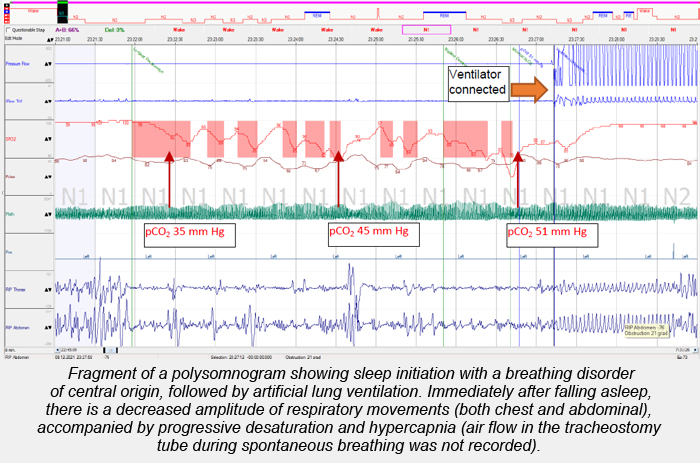
New phenotype of COVID-19-associated nervous system injury in a child reported
One of the research and clinical areas of the Research Department of Unknown, Rare and Genetically Determined Diseases of the WCRC for Personalized Medicine are sleep-related breathing disorders of central origin. For example, a very rare disease is ROHHAD syndrome with rapid-onset obesity, central hypoventilation, hypothalamus dysfunction, and autonomic dysregulation. Approximately 160 cases have been reported worldwide (J. M. Lee, et al., 2018), in Russia there are 6 children, three of them are treated at Almazov Centre.
A pediatric team at the WCRC for Personalized Medicine for the first time described a new ROHHAD-like phenotype of a virus-associated immune-mediated damage to the hypothalamus in a 3-year-old girl.
After a COVID-19 infection, an overweight child developed persistent central sleep-related breathing disorder requiring ventilation through a tracheostomy cannula. There was a poorly controlled fever, regression of motor functions due to muscle weakness and fatigue, electrolyte and endocrine disorders, signs of autonomic dysfunction. Based on the analysis of the disease course, anamnestic data on improvement with the initiation of glucocorticosteroid therapy, a persistent increase in laboratory markers of inflammation (ESR, C3, D-dimer), and taking into account the response to therapy with non-steroidal anti-inflammatory drugs, COVID-19-associated immune-mediated hypothalamic involvement was suggested. Intravenous immunoglobulin therapy was initiated, and a significant clinical effect was achieved in 5 months.
Managing such complex cases requires a multidisciplinary approach involving experts from many specialties: geneticists, pediatricians, endocrinologists, neurologists, pulmonologists, rheumatologists, cardiologists, intensivists and somnologists.
The clinical case was reported at the ROHHAD International Consortium Virtual Symposium on February 26, 2022, and was accepted for publication in the Q1 Frontiers in Pediatrics.
07.04.2022
